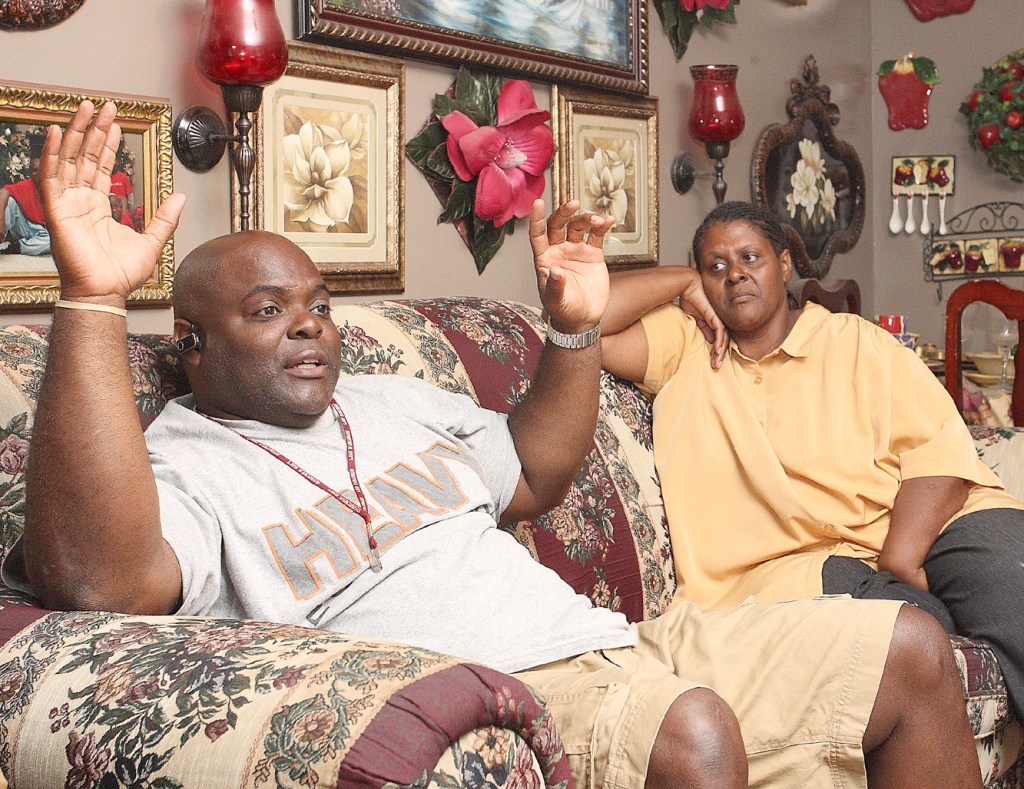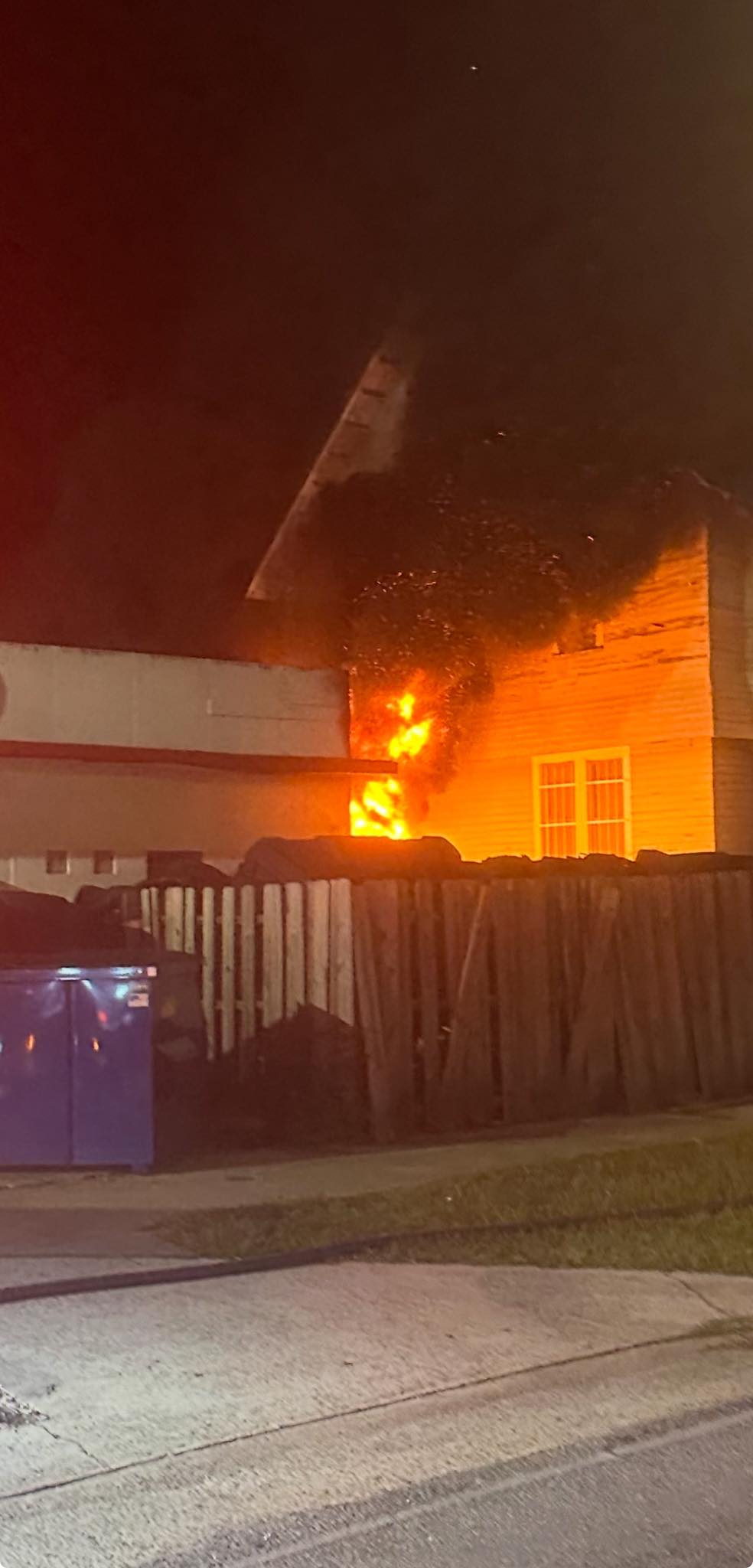Retiring soldier talks about Iraq tours
Published 9:26 pm Sunday, May 10, 2009

- Paul Leavy/The Valdosta Daily Times Richard Brown talks about his experiences in the U.S. Army as his mother Alice Brown listens.
VALDOSTA — During his three tours in Iraq, Richard Brown said he “saw some things no one should ever see.”
Brown, the son of Joseph and Alice Brown, is retiring after 20 years in the Army. Asked what he plans to do now that he is retiring, Brown succinctly said, “Fish.”
There are fishing spots in Iraq, he said, but the lakes and other fishing holes are often contaminated, sometimes with human remains. That doesn’t keep Iraqi nationals from fishing in them though. Whatever it is that the guys and gals like to do, that they can’t do in Iraq, that’s what they want to get back to once they return home, he said.
Asked if he would share some of his experiences in Iraq, Brown said, “I try to forget about those. There’s a lot of things that once you see it, you try to forget it but you can’t.”
His mother, Alice Brown, said Richard still has trouble driving on the right side of the road. He got used to driving down the middle of the road to avoid roadside bombs, she said.
After high school, his father got him a job working at Firstline Corporation, but he said he had a hard time finding constructive ways to spend his free time. His friends were going off to school and getting jobs, so he decided the Army offered an opportunity to further his education and learn some valuable skills. He completed an associate’s degree in applied technology while on active duty, and is currently working to complete a bachelor’s degree in communications.
Brown said he saw the most fighting during his first deployment in 2003. A lot of the young kids, 18, 19, and 20, coming to Iraq for the first time couldn’t handle it, he said. One soldier locked herself in a bathroom with her weapon. She was sent back to the U.S.
Regular care packages, letters and e-mails from home helped, he said. Alice said she felt helpless at first, like her son was in a world where even prayer could not reach him, but she learned better. Her church family was a huge help during Richard’s deployments, she said.
At retirement, Brown was a platoon sergeant in charge of 20 soldiers, part of a special troops battalion. Their main job was to keep the secure and non-secure communications lines open, what the Army calls the Sipper and Nipper. If something interrupted the lines of communication, he and his troops, wearing full body armor had to go out in the searing heat and put in line-of-sight shots, check IP addresses, and so forth to restore communications.
In Iraq, “a lot of people got sick out of the blue,” he said. The extreme temperature change, mosquitos, rats, contaminated water, could all be potential reasons why someone might get sick.
Sometimes a soldier would wake up with sores like something had been eating on them, he said, with a hole on the back of their leg the size of a quarter. When he asked one soldier, “How’d you get that?” the man said he woke up and took a shower and there it was.
During his second Iraq tour, Brown said he developed a mass on his adrenal gland that started causing kidney problems. He was sent to Germany for treatment that lasted about six months. The hardest part of the ordeal, he said, was feeling like he had abandoned his troops. He was in charge of about a dozen soldiers. When he was a private, he said the older troops looked out for him, and now it was his responsibility to “make sure these guys and gals got back home.”
Contrary to popular belief, Brown said bullets were not flying everywhere in Iraq. Even worse than the physical challenge, he said, was the mental challenge, the mind-numbing routine. During his last deployment, he was stationed at a camp called Q West.
“You don’t need to sit around and kick cans over there because that place is absolutely depressing,” he said. “You sit there and you see the same people every day.”
The gym was open 24 hours a day, and Brown would get up at 2 a.m. to go work out for something to do. An incoming lieutenant and he became friends and workout partners. Clenna Abuan was 22 and new to the camp and he was getting close to retirement.
“They started calling us the odd couple because every time you saw one you saw the other,” he said.
Brown said the Army taught him a lot. It forced him to align himself with a lot of people whose philosophy was very different from his own. Brown has two children, Jason, 19, and Jordan, 16. Jason is following in his father’s footsteps and joining the Army, he said. Jordan attends high school in Atlanta.
Alice said the key to coping with her son’s deployments was staying busy, saying lots of prayers, and sending daily care packages. It often took her care packages a couple months to reach her son. Richard said one package was burnt and the address nearly obliterated when it reached him, but it still found him with its contents intact.
“She always told me I had to share and she sent enough so the other soldiers could have some too,” Brown said.
Alice had one adopted child when Richard first deployed, and she adopted two more during his time in service. She pointed to a stack of quilts she made to keep her hands busy. The last time Richard deployed to Iraq, Alice said he didn’t tell her until the day he left because he knew how it would affect her.
Brown recently attended his own retirement dinner at which he saw some people he hadn’t seen for 20 years, like his first cousin from Jacksonville. He also saw his Uncle Mervin, who kept in touch with him by e-mail while he was deployed, his sister, Irene, and brother Joseph. His Uncle Mervin took him fishing every time he returned from a tour of duty, Alice said. In addition to fishing, Brown said he is looking for a job in the communications field.





